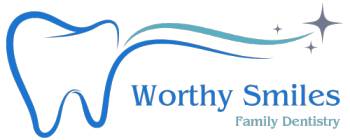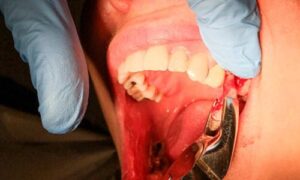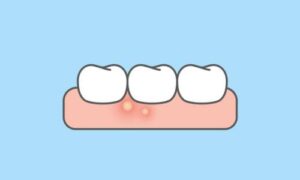Before we dive into overcoming dental anxiety, it is essential to understand what it is. Are you one of the millions of people who suffer from dental anxiety? Does sitting in a dentist’s chair make you break out in a cold sweat? If so, you are not alone. Many people experience fear or anxiety regarding dental procedures, making getting the dental care they need challenging. Fortunately, there are several strategies you can use to overcome dental anxiety and get the dental care you need. This article will explore some tips and techniques for overcoming dental fear.
What Is Dental Anxiety?
Dental anxiety is a fear or phobia that relates explicitly to dental procedures.
People who suffer from dental anxiety may experience a range of symptoms, including:
- Fear or nervousness before a dental appointment
- Panic attacks during a dental procedure
- Difficulty sleeping the night before a dental appointment
- Avoiding dental appointments altogether
- If you are experiencing any of these symptoms, you may suffer from dental anxiety.
Causes of Dental Anxiety
Dental anxiety can have many different causes. Some of the most common causes of dental anxiety include:
- Previous negative experiences with dental procedure
- Fear of pain or discomfort
- Fear of needles or injections
- Fear of loss of control
- Embarrassment or shame about the condition of your teeth
- Understanding your dental anxiety’s root cause can help you better address it.
Tips for Overcoming Dental Anxiety
Now that we have explored what dental anxiety is and what causes it let us take a look at some of the best tips for overcoming dental anxiety:
1. Communicate with Your Dentist
One of the best things you can do to overcome dental anxiety is to communicate openly and honestly with your dentist. Let your dentist know that you experience anxiety regarding dental procedures, and work together to devise a plan to make your appointments as comfortable as possible. Your dentist may be able to offer strategies like using numbing agents or taking breaks during more lengthy procedures.
2. Practice Relaxation Techniques
Relaxation techniques like deep breathing, meditation, and visualization can reduce anxiety. Consider practicing these techniques in the days leading up to your appointment to help you feel calmer and more centered.
3. Distract Yourself During the Procedure
Distracting yourself during the procedure can be an effective way to reduce anxiety. Consider bringing headphones and listening to music or a podcast during your appointment. Some dental offices even offer virtual reality headsets to help patients feel more relaxed.
4. Use Medication
In some cases, Medication may be necessary to help manage dental anxiety. Your dentist may prescribe an anti-anxiety medication or a sedative to help you feel more relaxed during the procedure.
5. Try Cognitive Behavioral Therapy (CBT)
CBT is a type of therapy that can be effective at treating anxiety. CBT can help you to identify negative thought patterns and replace them with more positive, helpful ones. Consider working with a therapist who specializes in CBT to help you overcome your dental anxiety.
6. Choose the Right Dentist:
Finding a dentist who understands and empathizes with dental anxiety is a crucial first step in overcoming dental fear. Look for a dentist who specializes in treating patients with dental anxiety and has a friendly and caring attitude.
7. Ask for a Break:
If you need a break during the procedure, do not hesitate to ask your dentist. Taking a break can help you calm down and regroup.
8. Bring a Support Person:
Bringing a friend or family member with you can provide comfort and support during the appointment.
Techniques for Coping with Dental Anxiety
Change Your Mindset: Reframing your thoughts about dental appointments can help reduce anxiety. Instead of the potential pain or discomfort, focus on the procedure’s benefits and how it will improve your oral health.
Use Positive Self-Talk: Use positive affirmations, such as “I am strong, and I can handle this,” to help calm your nerves.
Create a Relaxing Environment: Bring a stress ball or fidget toy to the appointment. Having something to keep your hands busy can help reduce anxiety.
Visualize a Positive Outcome: Visualize yourself having a stress-free and comfortable dental visit.
Take Control: Ask your dentist to explain each procedure step and what to expect. Having control over the situation can help reduce anxiety.
Conclusion
Dental anxiety can make it challenging to get the dental care you need, but there are several strategies you can use to overcome it. By communicating with your dentist, practicing relaxation techniques, distracting yourself during the procedure, using Medication, and trying CBT, you can reduce your anxiety and get the dental care you need. Dental anxiety is a common problem preventing people from seeking essential dental care. However, with the right tips and techniques, it is possible to overcome dental anxiety and have a stress-free dental visit.
FAQs
Is dental anxiety common?
Yes, dental anxiety is a common condition that affects many people.
What causes dental anxiety?
A range of factors, including previous negative experiences, fear of pain or discomfort, fear of needles or injections, fear of loss of control, and embarrassment about the condition of your teeth, can cause dental anxiety.
Can dental anxiety be treated?
Yes, dental anxiety can be treated. Several strategies can effectively reduce stress, including communication with your dentist, relaxation techniques, distraction during the procedure, Medication, and cognitive behavioral therapy (CBT).
Is it essential to overcome dental anxiety?
Yes, overcoming dental anxiety is essential to ensure you receive the dental care you need. Neglecting your dental health can lead to more severe problems down the line.
Can dental anxiety be completely cured?
While dental anxiety may never completely go away, it can be effectively managed with the right strategies and support. You can learn to feel more comfortable and relaxed during dental procedures with practice and persistence.














